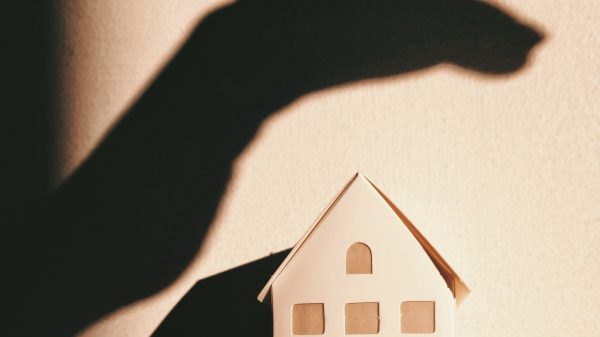Homeowners are selling less frequently
Did you miss the news item that will certainly impact your business for years to come?
Homeowners are selling their homes two and a half times less often than they did just a few years ago — and now it is clear that this isn’t a temporary aberration. Homeowners are staying put 50 percent longer than they did in 2007, from six to nine years, which is bad news for real estate brokers and agents who need volume to grow their businesses. Even worse, new buyers plan to stay put for 15 years or even longer.
![]()
Looking at the decline
Over the past 16 years, homeowners have been steadily increasing the time that they stay in their homes. For about 20 years, from 1987 to 2008, homeowners sold their homes an average of every six years. When the housing recession hit, homeowner tenure began to rise, and by 2014 homeowners were selling only every nine years. Following a bump up to ten years in 2014, the average homeowner is again selling every nine years, according to a new analysis by NAR’s Amanda Riggins.
Many experts suspected the housing recession, which sucked equity out of millions of homes, was the reason people couldn’t sell. If so, one would expect that since the recovery has almost returned that national median home price to its peak value, lost equity would be restored and owners would be free to finally sell and move.
Except that’s not happening.
What’s more, it looks as though owners will be staying put even longer in the years to come. NAR’s research found that repeat buyers’ median expected tenure rose to 15 years in 2010, and it hasn’t budged in the six years since then. First-timer buyers expect to sell in 10 years.

Why homeowners aren’t moving
Clearly, more forces are at work than the rise and fall of home equity. For one thing, the recession spurred an involuntary exodus of more than seven million families who lost their home to foreclosure or short sales. Second, only half of all homeowners have a mortgage, and the equity crunch handcuffed about half of those.
One of the primary causes for relocations — changing jobs — has also declined.
Workers stick with the same job longer today than they did 10, 20, and 30 years ago.
U.S. workers had an average job tenure of 4.6 years in 2012, the last year for which figures are available—that’s up from 3.7 years in 2002 and 3.5 in 1983, according to the Bureau of Labor Statistics. The trend holds up within almost every age and gender category — so it cannot be explained away by women’s increased presence in the workplace, or people working past traditional retirement age.
Moreover, mass migrations driven by opportunities for employment that characterized the Great Depression and continued through the 50s are also a thing of the past. The percentage of interstate movers dropped from nearly 3 percent in the 1980s to less than 1.5 percent from 2010 to 2015 according to Raven Molloy, a researcher at the Federal Reserve.
The decline is pervasive across all age, demographic, and socioeconomic groups, and Molloy finds no complete explanation for the magnitude of the drop.
Analysts say the long-term decline in migration has occurred because the U.S. population is getting older, and most moves are made when people are young. Another brake on moving is the rise of two-career couples since it is more difficult to coordinate a relocation when two jobs are involved.
Homeowners who don’t have to move for economic reasons also are not choosing to move because they like where they are. A recent Pew survey found that stayers overwhelmingly say they remain because of family ties and because their hometowns are good places to raise children. Their life circumstances match those explanations.
Most stayers say at least half a dozen members of their extended families live within an hour’s drive; for 40 percent more than 10 relatives live nearby.
A majority of stayers also cite a feeling of belonging as a major reason for staying put.
Finally, more Boomers are aging in place. Seniors are staying in their family homes rather than downsizing, or moving to retirement communities or rentals. According to AARP, 87 percent of adults age 65 plus want to stay in their current home and community as they age. Among people age 50 to 64, 71 percent of people want to age in place.
What it means for the real estate economy
Here’s a short list of the fallout of longer homeowner tenure:
• Both sell-side and buy-side representation will not grow as quickly as the growth in the number of homeowners. Homeowners buy and sell fewer homes less frequently, so each prospect will generate fewer transactions and less business during their lifetimes.
• The coming of age of the largest generation of Americans in history, the millennials, will have a muted impact on the long term market place because they are buying at an older age. In fact, the entire market is aging; the median homebuyer in 2004 was 39 compared to 44 in 2015. Aging first-time buyers combined with longer tenure reduces the number of homes each household will buy even further.
• Homeowners will spend their money on remodeling, not moving. The Harvard Joint Center on Housing Studies projects that annual growth in home improvement and repair expenditures will increase at a rate surpassing eight percent by the second quarter of 2017. The combination of the aging population (another 10,000 Baby Boomers retire every day) and the aging housing stock means more homeowners are remodeling their existing homes so that they can age comfortably in them.
• Purchase mortgages will decline and so will defaults, as homeowners have more time to build equity. Lower migration can also increase demand for second liens, as homeowners decide to renovate the homes they plan to live in for a longer time. Buyers will prefer mortgage products that minimize interest rate risks, such as fixed-rate mortgages or longer-term adjustable-rate mortgages.
• Owners who stayed put over the past decade will realize the benefits of regaining the equity they lost, which will make their retirement years more comfortable.
#FutureOfSales
Steve Cook is editor and co-publisher of Real Estate Economy Watch, which has been recognized as one of the two best real estate news sites in the nation by the National Association of Real Estate Editors. Before he co-founded REEW in 2007, Cook was vice president of public affairs for the National Association of Realtors.
















































